16th Annual International Law and Religion Symposium
The 16th Annual International Law and Religion Symposium, “Connecting Communities of Discourse: How the Judiciary, Academia, Government and International Institutions Further the Work of Religious Freedom”
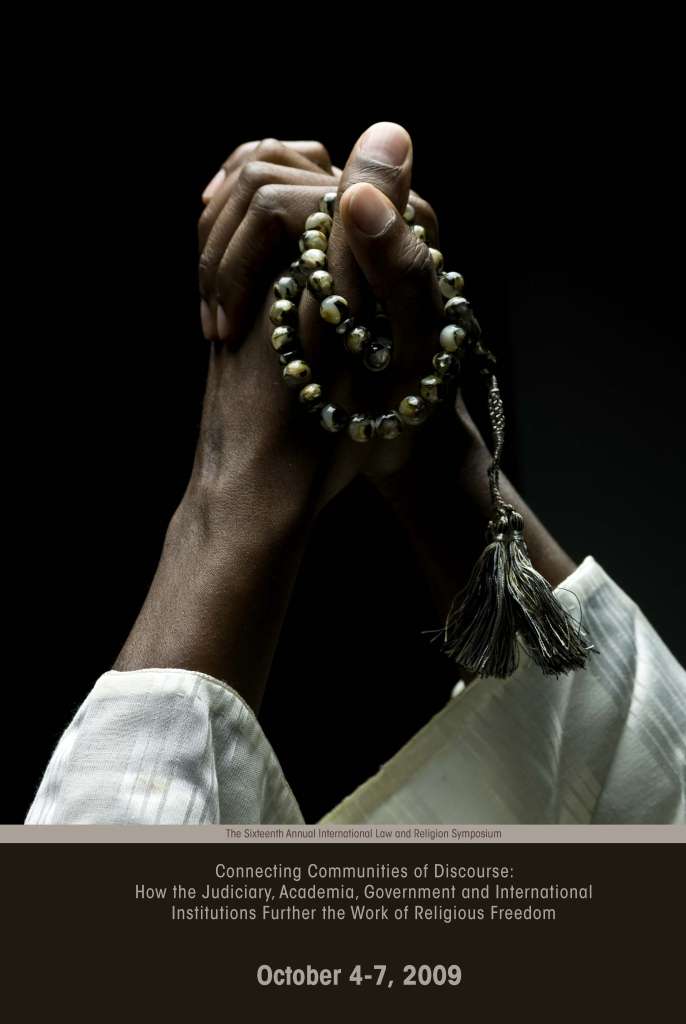
The 2009 Symposium brought together in Provo, Utah, more than 80 scholars, judges, and government and religious leaders from 44 countries to discuss challenges and successes in implementing principles of freedom of religion or belief worldwide. The Symposium convened Sunday evening, 4 October 2009, at Brigham Young University’s J. Reuben Clark Law School, where delegates and other participants in the Moot Court Room as well as those accessing the live stream of the session available through this website, were pleased to witness the bestowal of the International Center for Law and Religion Studies’ Distinguished Service Award for Religious Freedom upon Senior Judge J. Clifford Wallace, Chief Judge Emeritus of the United States Court of Appeals for the Ninth Circuit. Keynote addresses were delivered by Anastasia Crickley, Chairperson of the European Union Fundamental Rights Agency…
The 16th Annual International Law and Religion Symposium Opens in Provo, Utah
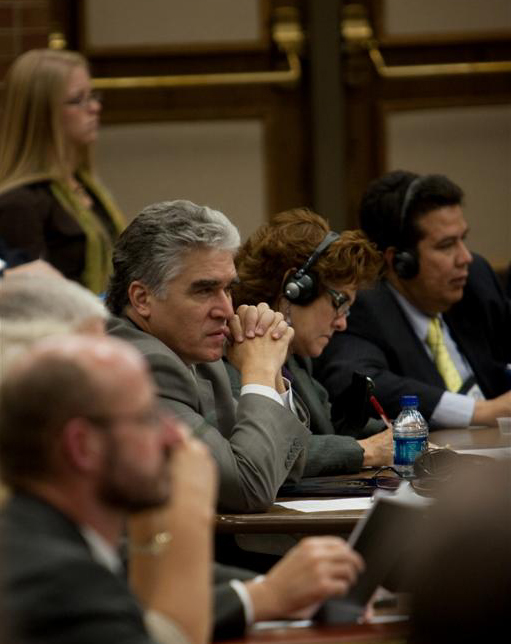
The Sixteenth Annual International Law and Religion Symposium of the International Center for Law and Religion Studies convened at Brigham Young University’s J. Reuben Clark Law School in Provo, Utah, on Sunday evening, 4 October 2009, at Brigham Young University’s J. Reuben Clark Law School, where delegates and other participants in the Moot Court Room as well as those accessing the live stream of the session available through this website, were pleased to witness the bestowal of the International Center for Law and Religion Studies’ Distinguished Service Award for Religious Freedom upon Senior Judge J. Clifford Wallace, Chief Judge Emeritus of the United States Court of Appeals for the Ninth Circuit. Keynote addresses were delivered by Anastasia Crickley, Chairperson of the European Union Fundamental Rights Agency, and The Honourable Pius Nkonzo Langa, Chief Justice of the South Africa Constitutional Court. …
The Center Thanks the 2009 Symposium Participants
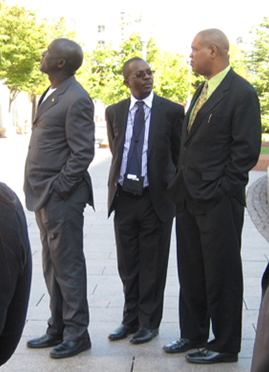
The Center was pleased to receive and hear from the 2009 distinguished experts, whose contributions created a truly exceptional Sixteenth Annual International Law and Religion Symposium. We extend our deepest appreciation to the more than 80 esteemed scholars, judges, legal experts, and government and religious leaders from more than 44 countries who were willing to travel to Utah to be with us, and who now join a prestigious group of more than 800 past Symposium participants in our continuing dialogue about matters most urgent to freedom of religion and belief worldwide. The Center also expresses gratitude to this year’s Student Executive Committee and many other students of Brigham Young University who provided invaluable help in organization, transportation, and translation. And we thank our colleagues at the Law School, the Law School’s excellent technical staff, and our many friends, some of whom traveled long distances to be with us during the Symposium to act as hosts for the delegates and in many other ways to provide invaluable assistance to the success of this year’s conference.
Distinguished Service Award for Religious Freedom 2009: Judge J. Clifford Wallace
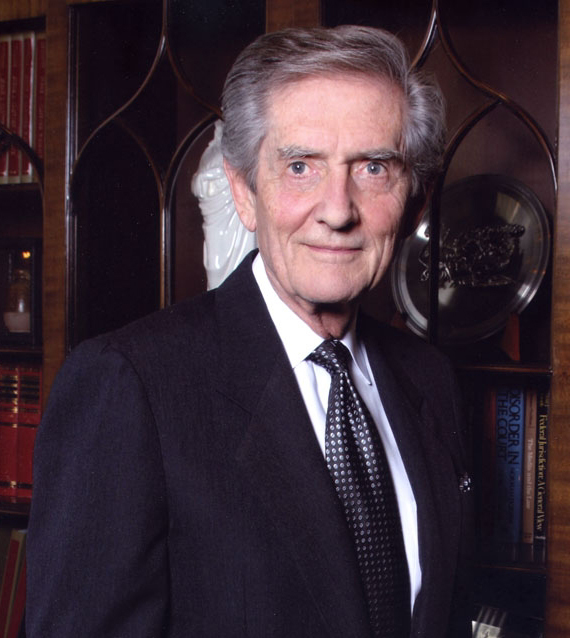
The International Center for Law and Religion Studies was pleased to honor Senior Judge J. Clifford Wallace of the United States Court of Appeals for the Ninth Circuit with the 2009 Distinguished Service Award for Religious Freedom, presented Sunday, October 4, during the opening session of the 16th Annual International Law and Religion Symposium. “Judge Wallace has contributed to the growth of strong judiciaries in many parts of the world, particularly in Asia,” notes ICLRS Director, Professor W. Cole Durham, Jr. “He has been a remarkable judge, a remarkable friend of democracy and democratization, and a great friend of human liberty. And this is part of a much broader pattern in his life. We are grateful that we have been able to work for so many years with such a devoted friend and supporter of the Center.”…
Symposium 2009: “Quietly Working toward Freedom”
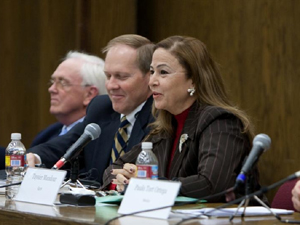
Deseret News columnist Lee Benson visited BYU Campus during the 16th Annual International Law and Religion Symposium and spoke to ICLRS Director Cole Durham and to several delegates, including the delegate from Egypt, Dr. Tayseir M. Mandour, Professor of Medicine at Al-Azhar University and member of the Supreme Council for Islamic Affairs (photo at right with Dr. John Taylor and ICLRS Managing Director Robert Smith), and Ismail Ibrahim Malik, Chairman of the National Handicap and Vocational Government Services Program, Zambia. “If we can have peace between people of different beliefs,” Dr. Mandour told Mr. Benson,” we can then have global peace. And that is everyone’s ultimate goal.” Mr. Benson also reports Mr. Malik’s summary of the feelings of Symposium participants: “We all realize that this is the forum where can can discuss ways to put things in perspective and move to the second level, where there is peace and unity.” Mr. Benson’s entire article, which appeared in the 9 October 2009 edition of the Deseret Morning News, may be viewed here.
Keynote Addresses 2009: Anastasia Crickley and The Hon. Pius Nkonzo Langa
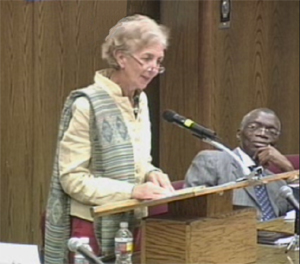
The Keynote speakers at the opening session of 16th Annual International Law and Religion Symposium, 4 October 2009, have devoted their careers to the cause of human rights. Anastasia Crickley, Chair of the European Union Fundamental Rights Agency, is Head of the Department of Applied Social Studies at National University of Ireland Maynooth, which plays a leading role in education and training for social justice and rights work. The Honourable Mr Justice Pius Nkonzo Langa has just concluded his term as Chief Justice of the South Africa Constitutional Court.
Professor Crickley opened her remarks with a tribute to…
Symposium 2009: Delegate Biographical Information
Participants Listed Alphabetically by Country Name (in English)
Please click delegate name below to view biographical information.
Click here for a photo directory of all delegates.
Albania
* Rasim Hasanaj, Chairman, State Committee on Cults of the Republic of Albania
* Brikena Kasmi, Head, Legal Drafting Sector, General Department of Codification, Ministry of Justice
Argentina
* Andrea De Vita, Directora General del Registro Nacional de Cultos, Secretaría de Culto
* …
Symposium 2009: The Hosts
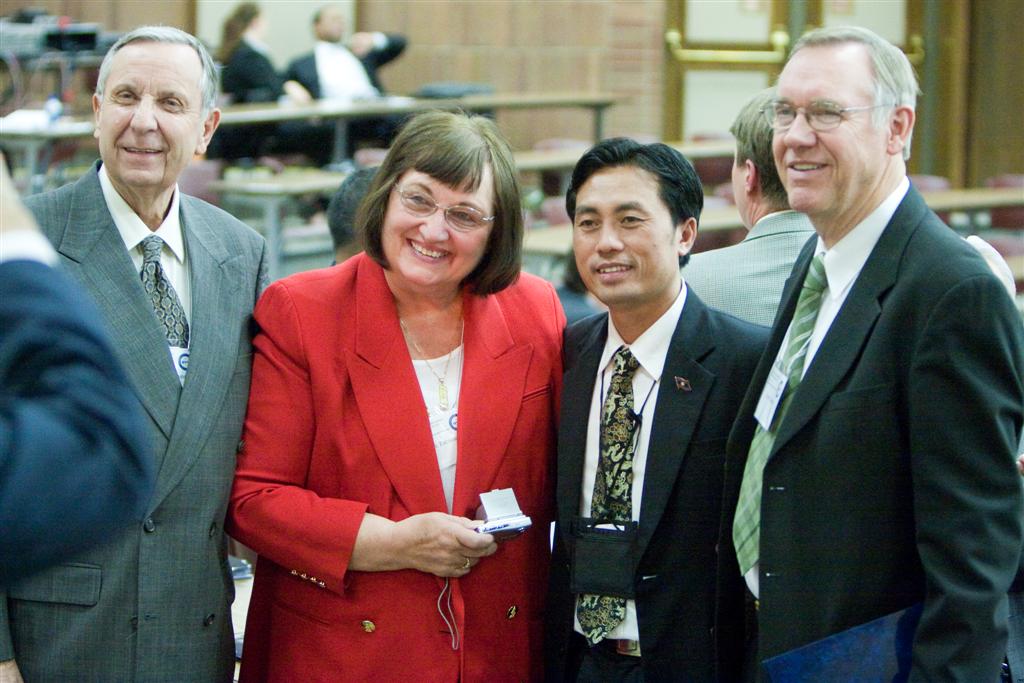
The Center is grateful to the many volunteers who joined us during the 16th Annual International Law and Religion Symposium to serve as hosts, helping to make the delegates’ stay in Utah more comfortable. In very large measure, the success of the Symposium depends upon these people. The reward? As one of this year’s hosts summed it: “It was a life-changing experience.” As we thank the hosts, the hosts in return express gratitude for enlightening presentations, stimulating conversations, and warm…
Symposium 2009: Student Volunteers
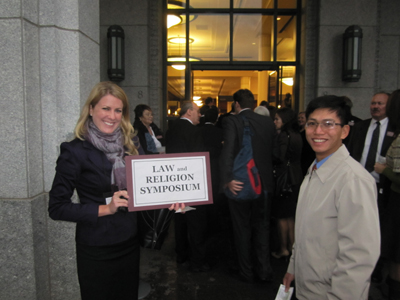
Each year in preparing for and carrying out the International Law and Religion Symposium, the Center relies upon a great number of student volunteers, most of them from the J. Reuben Clark Law School. This year approximately 100 students, supervised by ICLRS Director of Publications Christine Scott and organized under a student Executive Committee, have assumed responsibility for coordinating such aspects of the Symposium as transportation, informal translation, and other organizational logistics. The Center recognizes and thanks this year’s student volunteers and gives special thanks to the Executive Committee members: Erin Bradley, Diana Hardy, Megan Grant, Summer Wilson, James Urrutia, Joseph Wise, Kaycee Hulet, Alicia Rogers, Matthew Chandler, Dallin Morrow, Lorie Hobbs, Amanda Mackey, McKenzie Armstrong,and Shannon Grandy Allongo.
Closing Remarks 2009: Michael K. Young and W. Cole Durham, Jr.
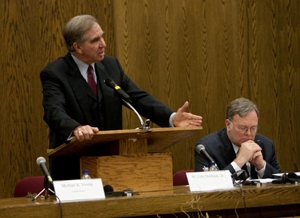
The Center was pleased to hear during the closing plenary session of the 16th Annual International Law and Religion Symposium in Provo on 6 October 2009 remarks by Michael K. Young, President of the University of Utah. President Young is a graduate of Harvard Law School and was clerk to Supreme Court Justice William Rehnquist. Before coming to the University of Utah, he was Dean of the George Washington Law School, Director of Columbia University’s Japanese Legal Studies Center, and U.S. Ambassador for Trade and Environmental Affairs. Among many other positions, he also served as the chairman of the U.S. Commission on International Religious Freedom, which experience served to inform his 2009 Symposium remarks.
Addressing the Symposium theme, President Young asked, “Can these various centers of dialogue—academy, governments, quasi-government organizations, NGOs, faith-based organizations—come together in a way that creates a true, agreed-upon international agreement that is effective?” From his long experience in the matter, President Young noted several requirements for such a result, including development, internally within the organizations and externally among them, of the capacity to be consistent in truly protecting principles of religious liberty for one’s own group and for all others, even when it might not be crystal clear that so doing is in one’s own interests. “The dialogue here [at the Symposium],” concluded President Young, “is an important beginning.” In response to a question from the audience, President Young noted “a small ray of light for a brighter future” in the fact that the level of violent conflict in the world has dramatically decreased during the past 30 years, dropping “almost 90%” over what it was in 1970. There are hopeful signs, he said, and “this conference is one of them.”
President Young had opened his remarks with a tribute to ICLRS Director Cole Durham: “I think there are few people in the world who have done more to enable us to think about religious liberties, to think about the relationship appropriate levels of government controls and faith-based organizations that Cole has. He brings a human perspective, but also a keep intellectual approach that have left me in awe at every conference I have attended.” In his own concluding remarks, Professor Durham noted that the challenges in promoting worldwide religious liberty “don’t seem to go away.” It is easier, he observed, to burn bridges than to build them. Reflecting upon observations by the delegate from Egypt, Dr. Tayseir Mandour, about the importance of reaching young people with correct principles, Professor Durham remarked: “We underestimate how little time we have with each rising generation to inculcate principles of respect and tolerance.” We must, he said, summarizing the remarks of keynote speaker Anastasia Crickley, “get beyond parallel lines.” In the words of keynote speaker Justice Pius Nkonzo Langa, we need to be sure that our home countries and home environments are places are worthy of the name home. “Justice Langa reminded us that you can’t be at home in the world at large unless you have a home of your own. We need to make those home environments safe for freedom of religion or belief.” As Bishop Juan Edghill, delegate from Guyana, observed: “Religious liberty thrives where there is a genuine movement from mere tolerance to respect. Religious liberty exists where you can freely propagate your faith without being demonized or vilified, and without demonizing and vilifying the faith of others.”
One of the things a conference like this can do, noted Professor Durham, is raise consciousness and help us see our own work. We must learn to expand the room at the dialogue table. If you truly listen to others, you can find solutions that no one working as a single body could find on their own. And beyond the dialogue is what Professor Tore Lindholm calls diapraxis—”the effort to find ways for groups not merely to talk together, but to work on joint projects together.” Professor Durham then made reference to Dr. John Taylor, who represents the International Association for Religious Freedom at the UN’s Geneva office and who had noted earlier in the day that “we can’t have rights without responsibilities” and that too many declarations and expressions of good will receive only lip service by governments and by society. Professor Durham referred delegates to the initiatives Professor Taylor referenced that are coming on international front, including an inter-religious coalition of some 60 organizations established to move for the initiation of a United Nations decade for interreligious and intercultural dialogue, understanding, and cooperation for peace. (See the coalition website here.)
“The fundamental questions we are really asking today,” summarized Professor Durham, “boil down to questions about how patterns of neighborliness can be encouraged, so that when the fire of intolerance begins to rage, people come out and say, ‘Put the fire away. These people are our friends.'”